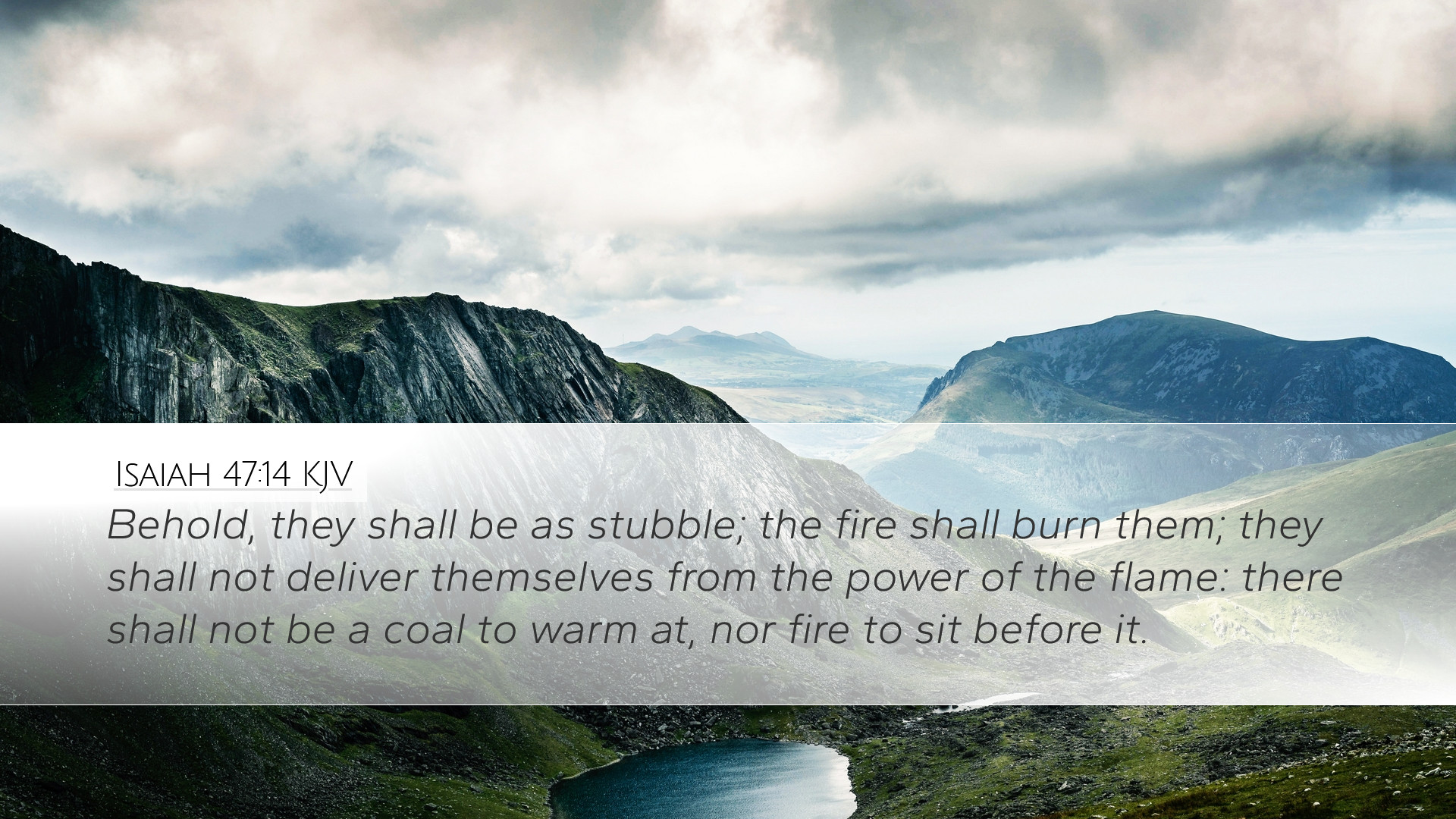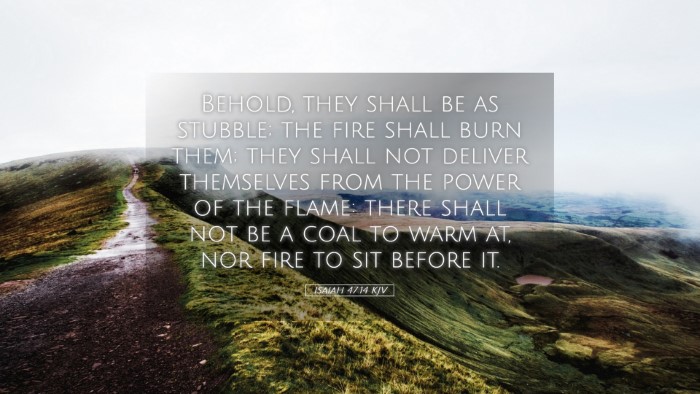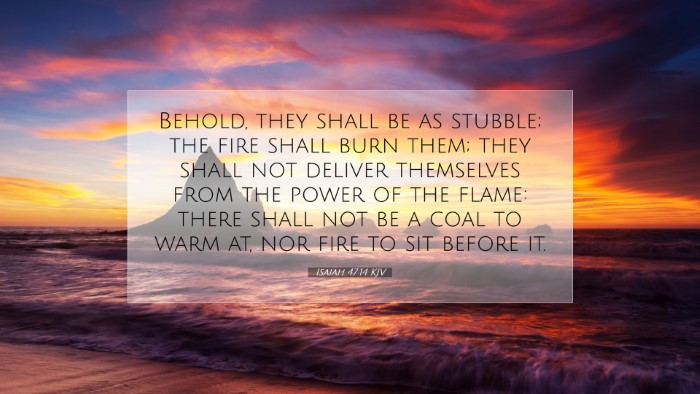Commentary on Isaiah 47:14
Isaiah 47:14 states:
“Behold, they shall be as stubble; the fire shall burn them; they shall not deliver themselves from the power of the flame: there shall not be a coal to warm at, nor fire to sit before it.”
This verse serves as a stark warning against the futility of reliance on worldly powers and false divinities. It appears within a context of prophetic judgment against Babylon, encapsulating the overarching themes of divine retribution and the transient nature of human strength.
1. Contextual Overview
The surrounding chapters highlight the downfall of Babylon, the prideful and mighty empire that had oppressed God's people. Isaiah writes during a time when Israel finds itself in bondage, and the prophecy serves to reassure the Israelites of God's ultimate authority and justice.
2. Analysis of Key Phrases
-
“Behold, they shall be as stubble”
Here, the stubble, or chaff, represents the worthlessness of idolaters and their reliance on false deities. Matthew Henry notes that just as stubble is what remains after the harvest—a substance utterly useless and easily consumed by fire—so will be the fate of those who oppose God.
-
“The fire shall burn them”
This imagery of fire is significant in biblical literature, often signifying divine judgment. Albert Barnes elaborates that the burning represents both the destruction of the opulent Babylonian empire and the spiritual judgment on those who forsake God. It emphasizes that no earthly power can withstand divine judgment.
-
“They shall not deliver themselves from the power of the flame”
Here, Isaiah emphasizes the incapability of these individuals to escape the consequences of their actions. Adam Clarke points out that despite their efforts, those who trust in themselves or false gods will find no refuge when facing God's wrath.
-
“There shall not be a coal to warm at, nor fire to sit before it”
This phrase portrays total desolation. The absence of any warmth or light symbolizes the complete rejection of God’s presence. Henry highlights that this indicates not only judgment but also the removal of all comforts that one may have relied upon from worldly sources.
3. Theological Implications
Isaiah 47:14 delivers a profound message regarding the transitory nature of human power and the certainty of God’s judgment. It serves as a reminder of the sovereignty of God over nations and individuals alike.
-
God’s Sovereignty
The fall of Babylon illustrates that no nation can rise above God's decree. As highlighted by Clarke, believers are reminded that God can and will dismantle any establishment, regardless of its might, when its time of judgment arrives.
-
Judgment on Idolatry
The verse underscores God's disdain for idolatry and reliance on human strength. Barnes remarks that this serves as a call to repentance and reliance upon divine strength rather than the weaknesses of human faculties.
-
Absolute Desolation for the Wicked
The imagery of fire provides a metaphor for the ultimate fate of those who reject God. Henry asserts that, ultimately, they will be left with nothing but the consequences of their choices, devoid of warmth or refuge.
4. Relevance for Today
In a modern context, Isaiah 47:14 resonates powerfully in an age riddled with pride, self-sufficiency, and idolatry in various forms. The warnings inherent in this text call the church and broader society to examine whom they truly trust and what they value.
-
Trust in God Alone
Believers are urged to place their trust in God rather than in material possessions, political powers, or social status. Isaiah’s message continues to remind us that these are ultimately ephemeral.
-
The Call to Holiness
As a call to holiness, believers should reflect on their own lives, ensuring that they are not aligned with the "stubble" of this world. The church must evaluate its commitment to Christ versus its entanglement in worldly matters.
-
Evangelism and Warning
The passage serves as an encouragement to share the Gospel, warning others about the fate that awaits those who remain in rebellion against God. It reminds us of our responsibility to be vessels of grace, calling others to repentance.
5. Conclusion
Isaiah 47:14 stands as a significant admonition against human pride, offering a profound insight into the nature of divine judgment and the ephemeral character of worldly strength. It not only serves as a historical warning for Babylon but also transcends time, bearing essential truths for contemporary believers, encouraging reliance on God’s eternal sovereignty. In this light, the text becomes a clarion call to authenticity in faith, urging both individuals and the church to be vigilant and faithful in their walk with God.


